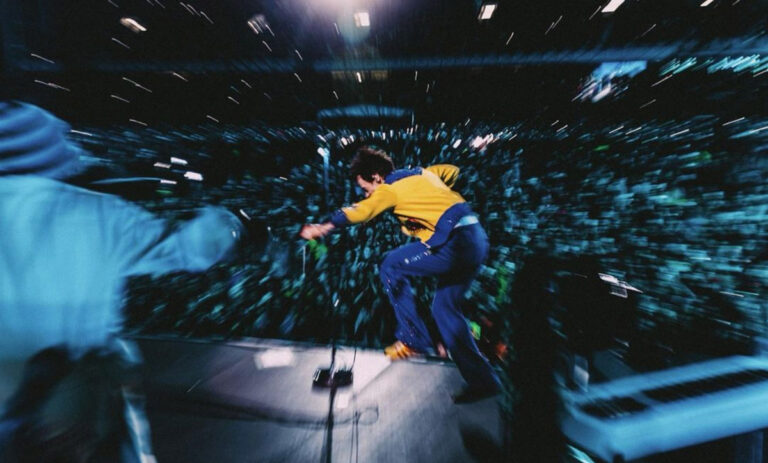Harry Styles fan falls from top balcony during singer’s concert in Glasgow
As initially reported by Sky News, a Harry Styles fan fell from the top tier at Glasgow’s Ibrox Stadium during the singer’s concert. The incident happened as the former One Direction star performed the first gig on the European leg of his world tour on Saturday 11 June 2022.
The victim, who is said to be a man, fell from the third floor of the venue into the audience and reportedly landed on other people among the crowd as Styles performed his encore. He has since been seen by medical staff and is not believed to have suffered serious injuries, according to various reports.
About 50,000 fans were at the sell-out event, which was the first at Rangers FC’s stadium in almost 20 years. In a statement, Police Scotland said, “Officers were made aware of a man falling from a club deck at a premises on Edmiston Drive, Glasgow at around 10.15pm on Saturday 11 June 2022.”
“There were no suspicious circumstances and the man was seen to by medical staff,” it continued.
pov ur me enjoying the show before i got swallowed by harry styles pic.twitter.com/XSbECIbaRV
— 🪰 on tour 🪩 (@hslotfly) June 12, 2022
Although Styles himself (or someone from his team of representatives) is yet to address the news, many internet users have already started comparing the incident to the tragic mass casualty that happened in November 2021 during the Astroworld festival.
Of course, it would be ridiculous to try and say that one man falling off a balcony is even close to the awful scenes most of us witnessed in clips shared from the Houston music festival but it also goes without saying why people’s first reaction in the face of concert-related accidents is to look back on this especially dark moment in music history.
“Still in shock after @Harry_Styles concert @Ibrox,” wrote one user on Twitter. “A guy fell from the tier above onto the main stand one row in front of us. No security to be seen. I had to run to [the] main door at street level to bring help. Everyone [was] in shock around us and so upset. Hope [the] guy is OK.”
“My 15 year old saw the guy fall and thought it was a blow up doll at first. Just horrific. Hope he and everyone else are ok. Horrible ending to a very special night,” another admitted.






